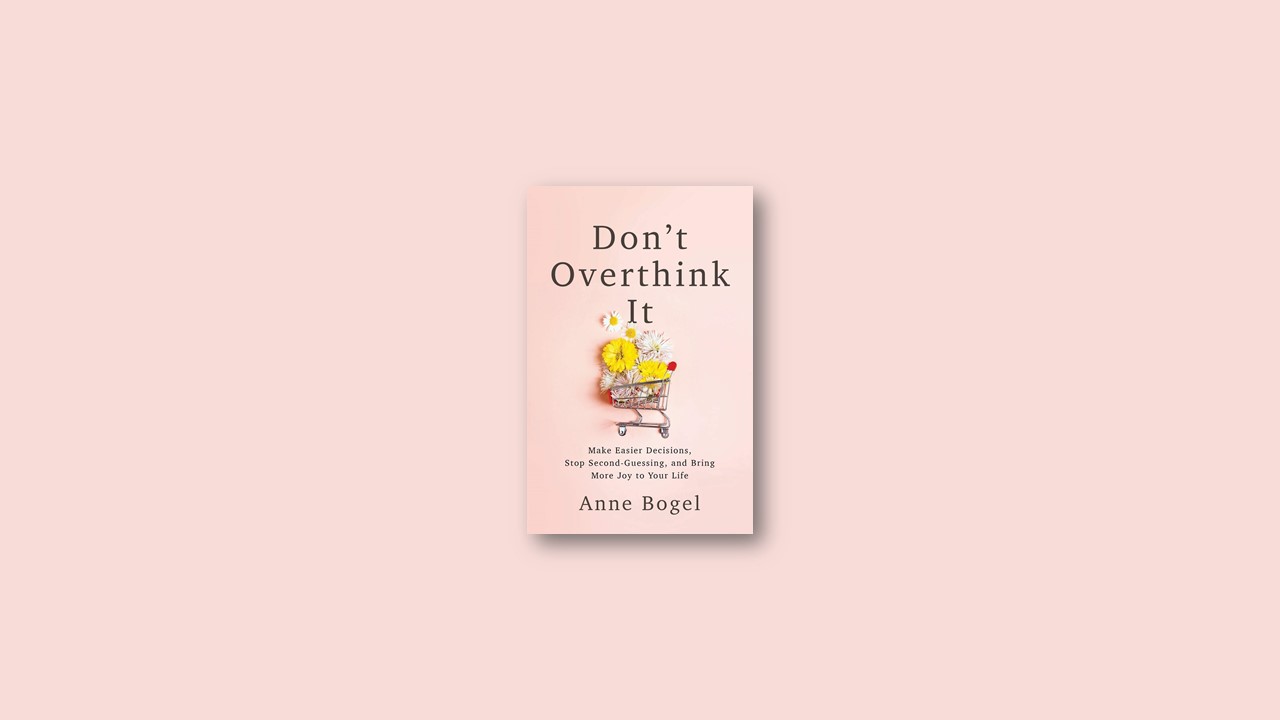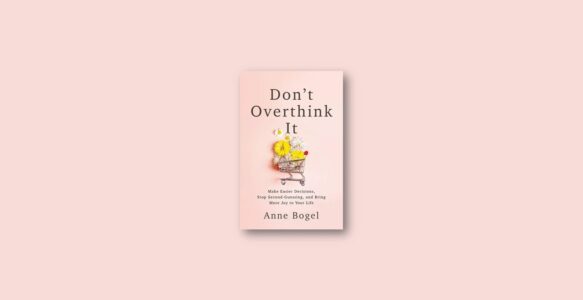Why We Overthink: Causes of Analysis Paralysis
Analysis paralysis does not affect us all equally; some of us are more inclined than others to get caught in this specific trap. Sometimes our less helpful tendencies, like perfectionism, predictably reel us in. Sometimes we’re snared by more insidious means when our best qualities, like intelligence and curiosity, get us into trouble.
When approaching a decision, we may get stuck for a variety of reasons. For example, we may enjoy exploring the options or feel uncertain about what to do, or we may be driven by a perfectionistic belief that the right answer is out there somewhere, waiting to be found.
#1 Intellectual Curiosity
When faced with a decision, intellectually curious people habitually seek more information about the matter at hand. They’re eager to learn more for the sake of learning and find the pursuit of new knowledge inherently interesting. When seeking a solution, highly intelligent people may see whole landscapes of possibilities that others don’t see—which may inadvertently lead them to make simple decisions needlessly complex.
These positive traits have an unintended consequence: they make us prone to analysis paralysis because they prod us to search for additional options, whether or not we need them. Those extra options don’t lead to better decisions; they just overwhelm us. And when we’re overwhelmed, we can’t decide anything.
Intelligence and curiosity don’t inevitably cause analysis paralysis, thank goodness. But if we’re unaware of the connection, these positive qualities are more likely to lead us astray.
#2 Information Overload
When we’re making a decision, more information can be a good thing. The problem is not the impulse to gather information but the degree to which we follow it. Gathering data and examining options are beneficial—but at a certain point, that hunt for information not only has diminishing returns but becomes actively unhelpful. (Information is good until it’s bad. See how sneaky overthinking is?) Before long, we’re trapped by our own thoughts, believing that if only we can find a new data point, identify the needed resource, or think a little harder about the issue, the answer will become clear.
Instead, that extra information only further overwhelms us. When we hold out for more data points, we’re not being smart; we’re sabotaging ourselves. We’re not moving toward a solution; instead, we’re actively making our situation worse.
Once established, the cycle is difficult to break. When—or if—we do ultimately reach a decision, we’re less sure about the outcome than we were before. Imagine my poor husband debating whether to go to Target. Because he’d overthought the situation, no matter what he chose, he wasn’t going to be happy. The same is true for us when we face our own decisions. Because of our overanalysis, we’ll be less satisfied with the outcome, even if we arrive at an objectively better one.
If we aren’t aware that analysis paralysis is the cause of our troubles, the cycle continues. Our dissatisfaction spurs us to analyze even more the next time we face a decision, which leads to greater paralysis.
#3 Perfectionism
Many are shocked to discover that perfectionism and overthinking go hand in hand; it’s a villain we recognize, in a role we don’t expect. But once we understand the connection, we can see how perfectionistic tendencies fuel overthinking. When we face a decision, the impossibly high standards demanded by perfectionism are just that—impossible. Whether we’re analyzing an imminent decision to death or we’re stuck in the past, regretting what we chose, we always want to get the decision right. But if we equate right with perfect, it is deadly—because when we aim for perfection, we freeze. When perfectionism reigns, if we can’t tell what the absolute, unquestionable best option is in a given situation, we do nothing—except fret about it. Hello, analysis paralysis.
The perils of overthinking before we make a decision are obvious: we end up like seven-year-old Will, unable to stay and unable to go. But overthinking isn’t confined to happening before our decisions. Perfectionism-driven overthinking often dwells in the space of what-ifs and second-guessing. The moment of decision may have passed, but we can still remain fixated on the decision, analyzing what we should have done.
How many of us have tortured ourselves with visions of what we wish we had said or done in the moment? Even if we handled the situation well, we may focus on the one thing we wish we’d done differently. Though the decision has long been made, we can’t put it behind us. Instead of weighing our options, making a decision, and moving on, we keep going back to the beginning of the decision-making process, wondering if we made the right choice and if it’s too late to make a different one.
All this second-guessing takes a tremendous amount of time and energy, adds considerably to our stress loads, and limits our capacity to make wise decisions in the future.
Antidotes to Analysis Paralysis
Obviously, if it were easy to stop overthinking, we all would have stopped a long time ago. We need actionable strategies to help us overcome analysis paralysis.
#1 Do a Reality Check
We get in trouble when we act as though the ideal answers to our questions are out there somewhere. We may believe that when we finally discover the right answer, it will seem obvious. But the right answer is rarely out there somewhere—and so we stew and stew, without arriving at a resolution, our overthinking manifesting as worry, doubt, and stagnation.
We can’t keep searching for perfect solutions, interesting as the pursuit may be, because perfect solutions don’t exist. There’s seldom one right answer; in reality, there are more often many good answers.
#2 Get Moving
To extricate yourself from analysis paralysis, you don’t need more information. You need to act.
Even taking a baby step forward can shift your momentum and get you unstuck.
Take a small step, set a deadline, make a list, or consult a friend (their objectivity will help you get out of your own head). Maybe you need to just pick something or get someone else to do it for you.
“Yes,” you say, “but if I’m paralyzed, how do I act?” That’s a good question. You may need to change your frame of mind.
#3 Kick Perfectionism to the Curb
Anne writes, “When we were painting my living room, my dad helped me see how instead of inspiring us to do good work, perfectionism makes us unhappy and prevents us from appreciating the good things in front of us. I was actively trying to paint a razor-straight green line right where the wall met the white ceiling. My line was a bit shaky, and I commented that the paint job wasn’t turning out the way I’d hoped. He laughed and said that’s the problem with painting your own house—you’re not as happy with the result as you would be if you weren’t the one doing the painting. “If someone else did the hard work, you’d think it looked great,” he said. “But when you’re the painter, you’re acutely aware of every single place you goofed. You can do a good job and still feel like you messed it up.”
He was right. I had done a good job. But as long as I insisted on comparing my good outcome to the ideal one in my head, I was going to make myself miserable. Perfectionism makes us critical, uptight, and generally not fun to be around. Plus, we’re more likely to overthink when we’re in a bad mood. There’s no need to be so hard on ourselves, because it doesn’t have to be perfect to be good.”
#4 Give Yourself Permission to Fail
It’s one thing to want to loosen the hold perfectionism has on you, but how do you actually do it? The remedy is to give yourself permission to fail—failure being defined as “anything short of absolute perfection”—and grace when you actually do.
Like it or not, failure can be incredibly instructive. Ironically, sometimes we get better results when we screw up than if we never get it wrong. If mistakes aren’t okay, we miss out on one of the fastest, most effective ways to learn. But failure can be a scary word to throw around
To learn from it, we need to get comfortable with it—and a change in terminology can help.
Anne has learned to say, “Let’s experiment,” because that phrase doesn’t make my insides clench up like the word failure does. An experiment is neutral, dispassionate. There’s none of that paralyzing pressure to get it right. When you try an experiment, success is getting an outcome. Any outcome. The goal is to get results, not a win.
#5 Adopt a “Try It and See What Happens” Approach
With an experiment, there’s no “do it right or do it again.” Instead, it’s “do it and see what happens.” Or “do it and then do it again,” incorporating whatever you learned the first time. This iterative approach frees us from the need to always get it right. Instead of waiting to feel certain before we take action, we can get good information, and fast, by trying something and seeing what happens next. There’s no agonizing over the right decision, and there are rarely regrets. Because all you need is an answer, not a victory.


